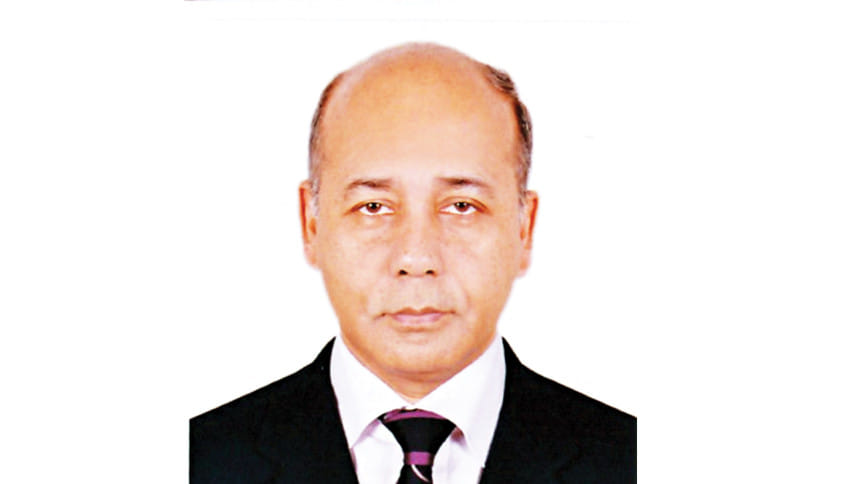BBS to form six expert panels to enhance data credibility

The Bangladesh Bureau of Statistics (BBS) will form six expert committees to strengthen monitoring and enhance data credibility, one of its top officials said yesterday.
"In response to various criticisms and discussions, we have taken steps to make our data more realistic and transparent," Mohammed Mizanur Rahman, director general of the national statistics agency, told The Daily Star in an interview.
"We aim to involve various stakeholders in the data production and release process across our six wings," he continued, adding that each committee will include representatives from government agencies, civil society, and private organisations who will be involved throughout the entire process.
The director general (DG) of the BBS will serve as the head of these expert committees.
"This move will help eliminate citizens' 'misconceptions' about BBS data," Rahman said.
The decision comes at a time when many stakeholders, including economists and analysts, have voiced concerns over the credibility of BBS data.
The recently published White Paper on the State of the Economy even labelled the country's data ecosystem as the 'villain' in the development narrative forged during the 15-year tenure of former prime minister Sheikh Hasina, who was ousted by a mass uprising in August last year.
"When stakeholders are engaged in data production and release, they will review the data before its publication, leaving no room for doubt," the BBS chief said.
He also noted that Planning Adviser Wahiduddin Mahmud has provided guidance on this initiative.Allegations of 'data manipulation' dismissed
Asked about allegations of data manipulation and external pressure, Rahman dismissed them as baseless.
"These claims stem from personal perceptions rather than facts. I have been with BBS for one and a half years, and during this time, no data has been manipulated," he asserted.
"There has been absolutely no pressure to manipulate data. We report the information exactly as we receive it."
Regarding the white paper and its claims, he stated, "We will act on the report only if the government issues a directive for implementation. However, no such directive has been given so far."
Rahman also attempted to look into previous allegations of data interference.
"I tried to investigate allegations against planning minister AHM Mustafa Kamal, who was in office between 2009 and 2013," he said.
"During that time, Kamal used to interfere slightly. When data was prepared and presented to him, he would ask to review it and suggest some modifications. However, he never directly instructed anyone to change, for example, a five to a six. There is no record of such instructions.
"If there were any complaints, they might be related to that period. But in subsequent periods, such as when Minister MA Mannan was in office, he did not interfere with data in any way."
Asked whether data from the period when Mustafa Kamal requested revisions has been reviewed, Rahman said, "No. No review has been undertaken."Challenges and limitations
Rahman also acknowledged certain limitations in data production that contribute to credibility concerns.
"When various accusations are made against BBS, I try to analyse what our challenges and shortcomings are," he said.
"One key issue is that GDP estimates, inflation data, and other statistics are still generated manually. We have not yet automated this process, which is a major limitation."
Additionally, BBS continues to rely on survey data, but it cannot always conduct regular surveys due to resource constraints, particularly budget limitations.
"Because of these challenges and our reliance on manual processes, automation would allow us to present data in a more refined and transparent manner," Rahman noted.
Furthermore, he pointed out that 80 percent of BBS data, particularly for GDP calculations, comes from secondary sources.
"If there are issues with the data we receive from these sources, there is little we can do about it," he admitted.Approval process for data release
When asked whether BBS data reports still need approval from advisers or ministers before release, Rahman clarified that while there is no longer pressure from advisers, the existing process requires presenting data to the Planning Adviser for approval.
"The adviser does not review the data. He simply states, 'I will not check the data; you can proceed with it as it is.' However, since this has been the longstanding practice, we still seek approval at the ministerial level," he explained.
"Once the expert committees are finalised, this step will no longer be necessary. The BBS DG will act as the head of these expert committees, and under his leadership, the committee will approve the data.
"The BBS DG will release the data directly, without sending it elsewhere—not even to the Statistics Division or the minister," Rahman concluded.

 For all latest news, follow The Daily Star's Google News channel.
For all latest news, follow The Daily Star's Google News channel. 



Comments